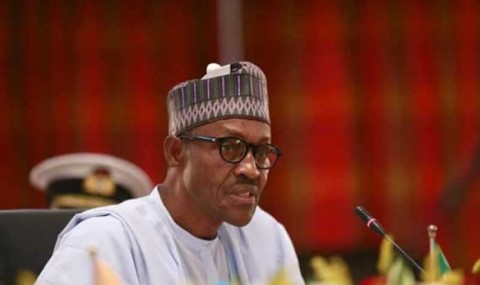Pure Water Economy, By Owei Lakemfa
Articles/Opinion, Featured Contributors/Columnists, Latest Headlines Tuesday, April 5th, 2016
BALTIMORE, MD (AFRICAN EXAMINER) – One of the first lessons I was taught in primary school was ‘the ingredients of good water’. We were taught that good water must be clean, colourless, odourless and tasteless. The best example of good water, was the public tap water. We were told that our parents pay tax in order for government to supply the citizens basic needs like water, education and good roads.
It was therefore illogical to me when later I read that President Gnasingbe Eyadama of Togo was importing cartons of bottled water from France. What water can be better than tap water? As I grew, the phenomenon of bottled water in our country developed. But it was for the ruling class. Later, sections of the middle class became prosperous enough to indulge in drinking bottled water. The lower classes, especially the poor, found an answer to bottled water with the rise of ‘pure water’ that is sachet water which could be anything but pure. In the 1990s it was usual for particles to be found in sealed sachet water. The regulatory agencies moved in to introduce some sanity.
While as a child, I was confident that tap water was safe, today, despite buying bottled water, I am not sure what I am consuming. Here, and when I travel abroad, I want to find out whether the bottled water I am taking is not expired and is safe. I have not made good progress in it as the labels read like a doctor’s prescription; they contain magnesium sulfate/chloride, potassium bicarbonate, calcium chloride, salt etc. I have read in some journals that these are naturally in tap water.
Worse is ‘pure water’ which is unlikely to be pure or healthy; with the sachet littering our roads, blocking drainages, and worst of all, is not biodegradable. As part of the signs of the times, ‘pure water’ is now slipping out of the hands of the poor. Earlier in the year, it was N60-N70 per bag in Abuja, now it is N120-N130. A sachet which was N5 is now N10 in most parts of the city.
The consumer mindset and policies that transformed our country from the safe, inexpensive tap water, to the costly, import-dependent, unhygienic and environmentally unfriendly ‘pure water’ also transformed our economy from a promising one, to a basket case. No better example typifies this than the perennial fuel shortages in a country so blessed with vast oil and gas reserves. We started commercial oil production in 1957, sixty years down the line, we have ‘developed’ from a country that refined its petroleum products to one that imports them hundred percent.
Apart from the economic costs, is the human. A few weeks ago, a friend traveling through Owo to Abuja experienced a nightmare. Two vehicles were involved in an accident and other road users could only watch helplessly as some twenty human beings were roasted by the jerry cans of fuel the vehicles were carrying due to fuel shortage. The maximum work hours in the world is eight, some Nigerians spend twice that just trying to fill their tanks.
The shortages reinforce my belief that Nigerians are an eternally hopeful people. This is the only way I can explain a man joining a 3-4 kilometre fuel queue in a station without fuel. It is only hope that will push a human being to spend the night at a fuel station exposed to mosquitoes and possible robbery without a guarantee that he would get fuel. What else but hope, or is it faith, that will make a Nigerian park his car in a fuel station for days without any certainty that the station will be supplied? The lengthy fuel queues and the inexplicable hope of Nigerians waiting at stations without fuel to sell, reminds me of John Peper Clarke’s poem, Fulani Cattle:
“Contrition twines me like a snake Each time I come upon the wake Of your clan, Undulating along in agony, Your face of stool for mystery: What secret hope or knowledge, Locked in your hump away from man. Imbues you with courage…”
The situation is not helped by the near collapse of the electricity system over two and half centuries after humanity discovered and began to use electricity. Humanity began flying over a century ago, but Nigeria, Africa’s largest economy, has not a single commercial aircraft in its name. We are a country of over 176 million people and on the average, need a pair of footwear each. I know some of us have so many pairs that we do not know the number. With such a huge market, why did out footwear, leather and rubber sector collapse decades ago and remains on life support? With this huge populace needing clothes on their backs, why did our huge textile industry collapse decades ago and is not being resuscitated? Why are we so blessed with resources including some of the best brains in the world, yet are so wretched?
Our underdeveloped and poverty-stricken state, my fellow citizens, is not in our stars. We need no stargazers or fortune tellers; the fault lies in us, as does the antidote. The National Union of Textile, Garment and Tailoring Workers Union has been at the fore front of the struggle to get us back on the road to economic sanity and recovery. Led by Issa Aremu, it has over the years called attention to our poor state and the need to get out of it. Apart from organizing annual conferences and debates, it also holds marches to call us to economic repentance.
The union’s latest effort was its international conference in Kano on March 18, 2016 with the theme: Labour and Industry: Back to Basics in which like a prophet crying in the wilderness, it repeated its basic message to us and our leaders: “Industrialization is the key to economic recovery. The advantages of industrialization include lessening of dependency on imports, thus saving scarce foreign exchange. Where the economy is diversified, industrialization serves as a source of foreign exchange. It also serves as a source of employment for greater number of the population and invariably reduces income poverty.” But who is listening?
Related Posts
Short URL: https://www.africanexaminer.com/?p=31552






















